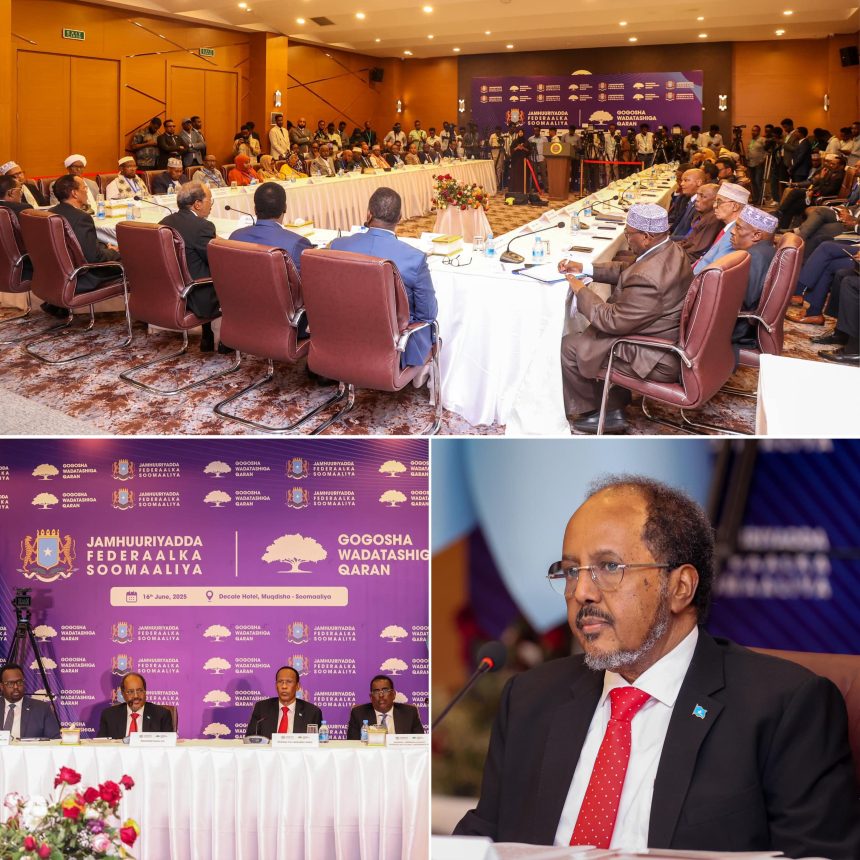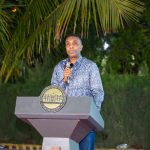The launch of Somalia’s National Dialogue on 16 June was a long-overdue attempt to move from permanent political paralysis toward national consensus. It was neither perfect nor complete, but it was real. Yet for opposition figures to now decry the process they chose to not show up is a masterclass in political hypocrisy. You cannot claim to be excluded from a table you deliberately opted not to sit.
Let’s be clear: the President extended an open invitation to all political actors, former leaders, opposition figures, civil society, Islamic scholars and registered Political Associations. No one was handpicked, and no seat was denied. The only exclusion that occurred was their choice not to show up – a decision they have no right to commentate who attended. To protest exclusion while refusing to engage is intellectually dishonest and politically inane. This isn’t about dialogue being “one-sided” it’s about some actors preferring to stay on the sidelines, resolved to complain rather than contribute.
Critics now argue the dialogue was dominated by allies and government loyalists. But how can they expect representation when they declined to represent themselves in dialogue? The very actors accusing the President of monologue were offered microphones, seats, and national coverage. They still did not show up. That is not marginalization rather a political indecision. Leadership means showing up, even when the terrain is tough, not retreating into social media posts, and shallow press statements while the nation debates its pressing priorities.
Absentee politicians’ argument that 1P1V is a “deception” is ironic, coming from some political actors who have never meaningfully advanced a credible alternative. Somalia’s current legal framework is undergoing reform precisely because indirect, elections are no longer tenable. What the President is proposing, a phased transition to universal suffrage is not an illusion but a path forward after decades of stagnation. Yes, challenges remain, but rejecting the journey because the first step is not perfect is self-defeating. The opposition claims to support electoral reform but has rejected every practical attempt to implement it. One cannot campaign against indirect elections and boycott the mechanism to replace them.
As for the process to complete the constitution, they have been debated openly and transparently at the Parliament chambers, proceedings live-streamed, full access to media, and documented proposals have all been part of this dialogue. Those taking issue with Article 69, 89 or 90, have been invited to contest them on the record, in public on the floor of parliament and they never showed up, alongside their fellow Somali members of Parliament. Instead, they opted to shout from the roof-tops. That’s not principled resistance. It’s political theater.
Let us dispense with the moral high ground myth. There is no monopoly on the opposition, and certainly no entitlement to unchallenged narratives. Real opposition bring alternatives not just accusations and rejections. Somalia deserves better than obstructionists who whine from a distance while others do the work of nation-building.
In politics, you cannot demand dialogue while rejecting every opportunity for engagement. You cannot claim to defend democracy while refusing to stand on its most basic platform: participation. There was a time in Somalia when political actors pleaded for a seat at the table from the government and when merely voicing dissent came at great personal risk. Today, we have reversed that dynamic: we have laid out the national consultation platform, actively searching for those who disagree with us, even appealing to them to speak freely, not just with us, but with their people.
To those who joined us and those who failed to show up, know this: the path of dialogue and consensus remains open. But history will not pause for those who abandon the moment for dialogue. If you trade presence for protest, and substance for sulking, do not expect a legacy, expect irrelevance.
H.E Hassan Moalim Mohamud – Minister of Justice and Constitutional Affairs of the Somali Federal Government.





